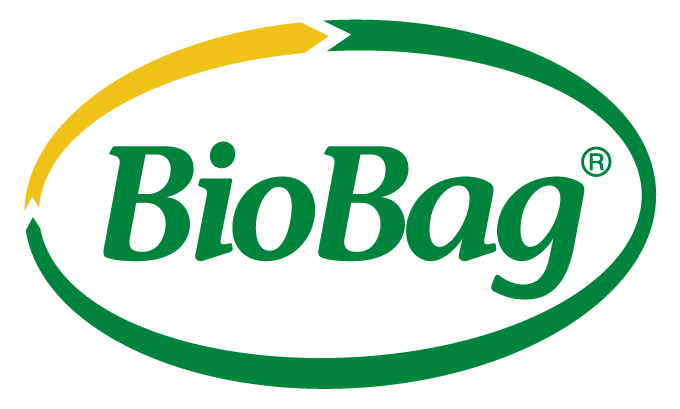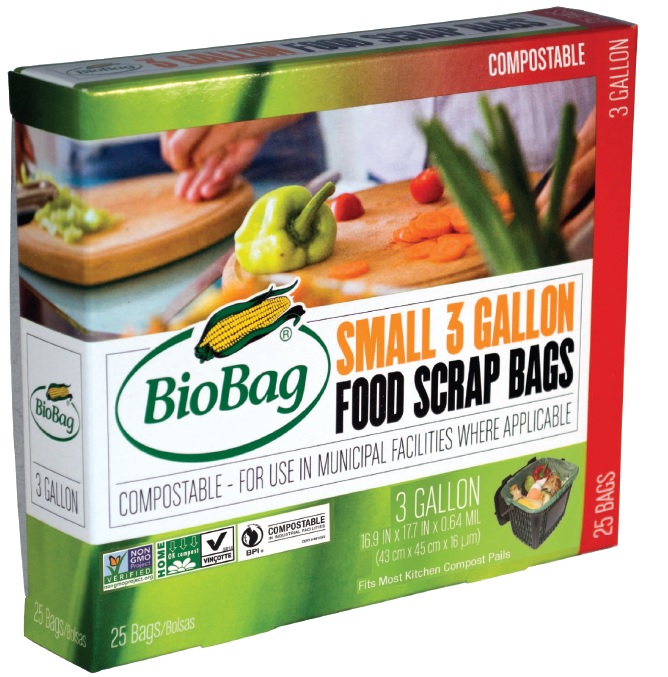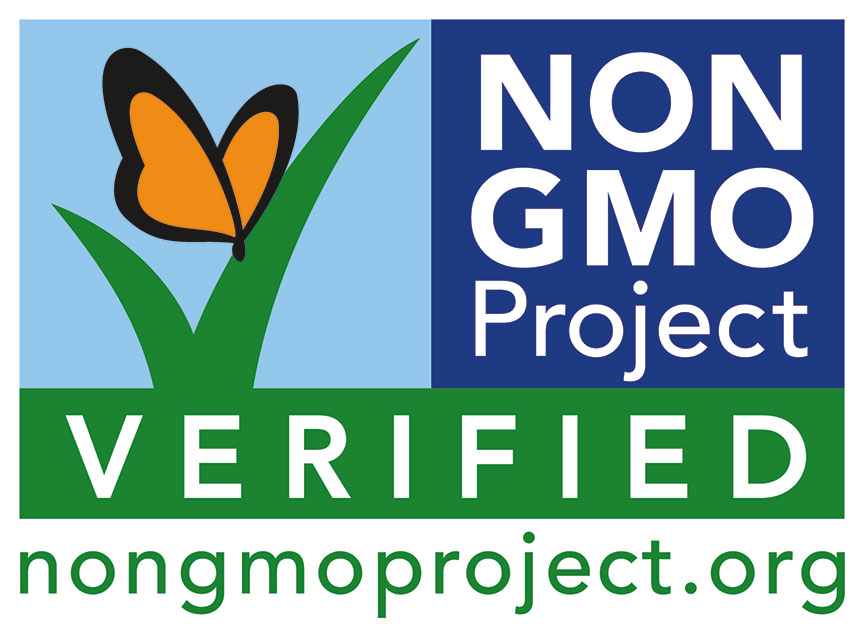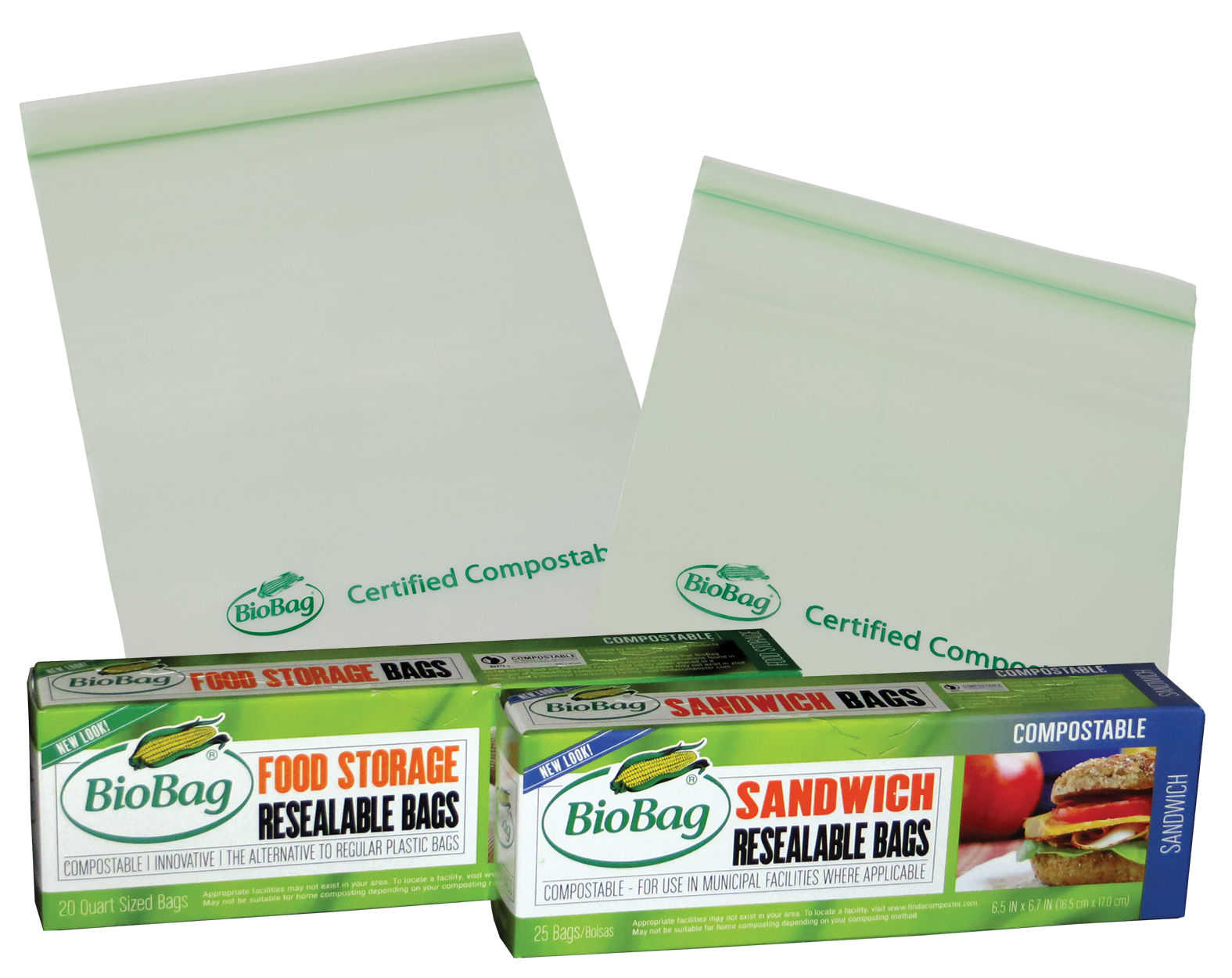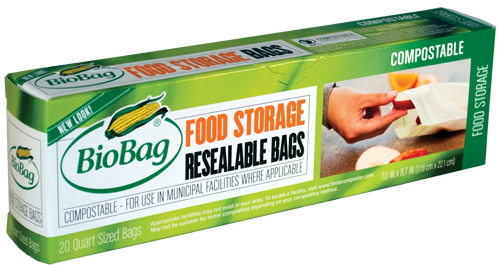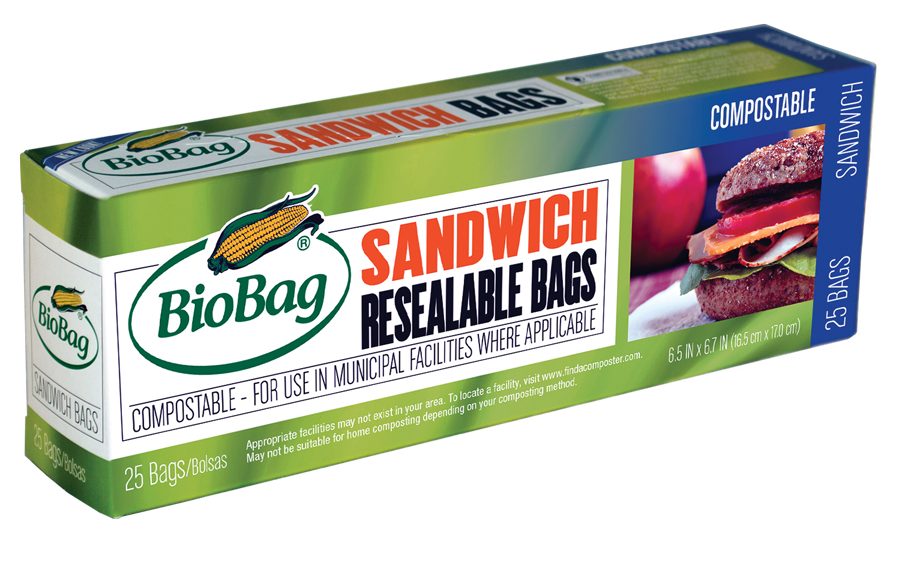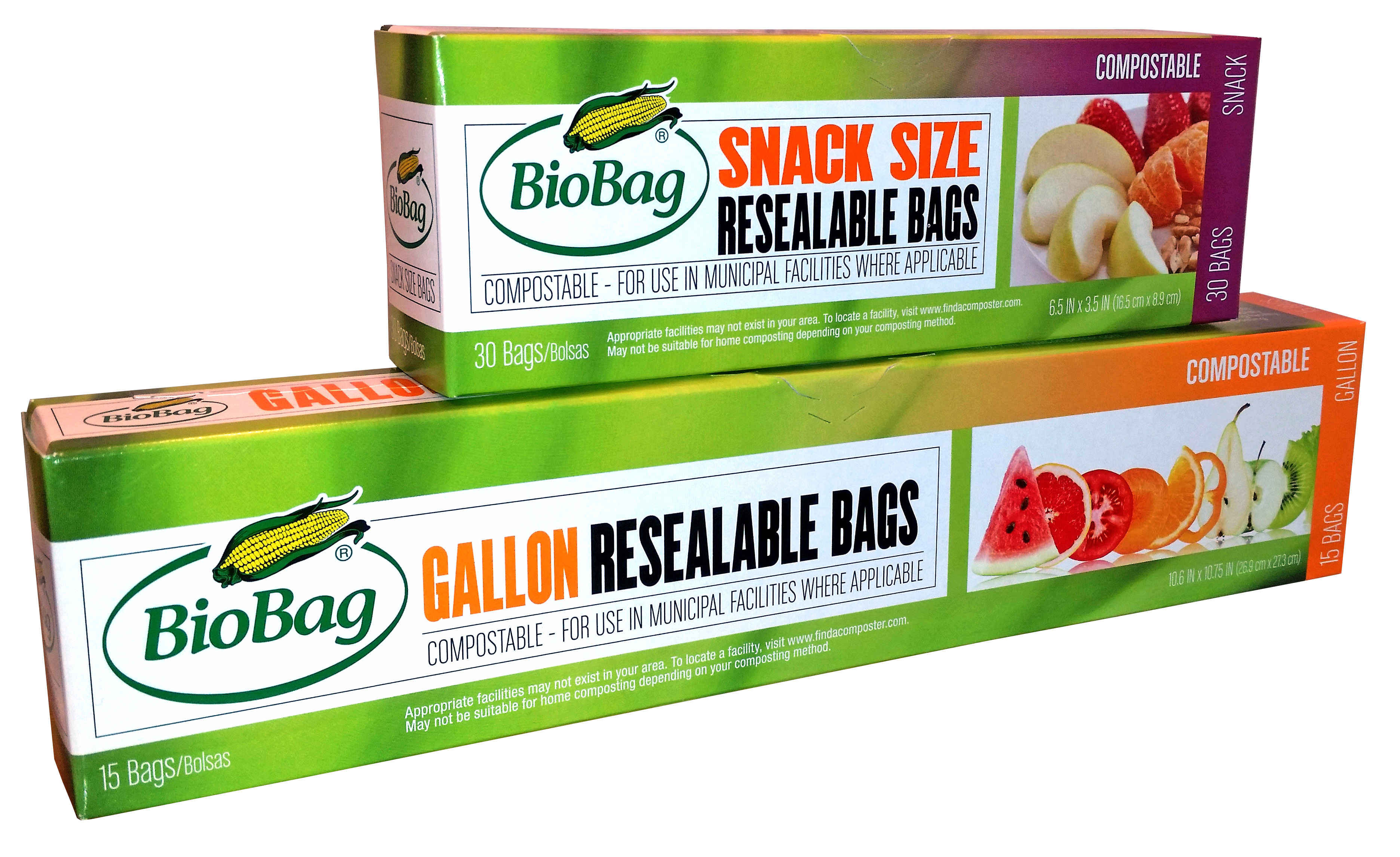
Introducing Compostable Resealable Bags
in Snack & Gallon Sizes!
In 2013, BioBag introduced compostable food storage and sandwich resealable bags. Now, we are proud to announce that we are expanding our resealable product line to include snack-size and gallon-size resealable bags! Like all of our other products, these bags are made from the material Mater-Bi®.
BioBag Resealable Snack Bags are ideal for taking snacks on the go. These bags are convenient for lunches or sorting portions at home. BioBag Resealable Gallon Bags are the largest in our resealable product line and are perfect for traveling, storing leftovers, and a variety of other in-home and on-the-go uses. Both bags are zip tight and great for storing all types of food.
When finished, users can discard the snack and gallon bags with other compost waste. BioBag Snack and Gallon Bags compost right along with other organic waste in a municipal compost facility to create nutrient-rich soil – even the zippers are compostable!
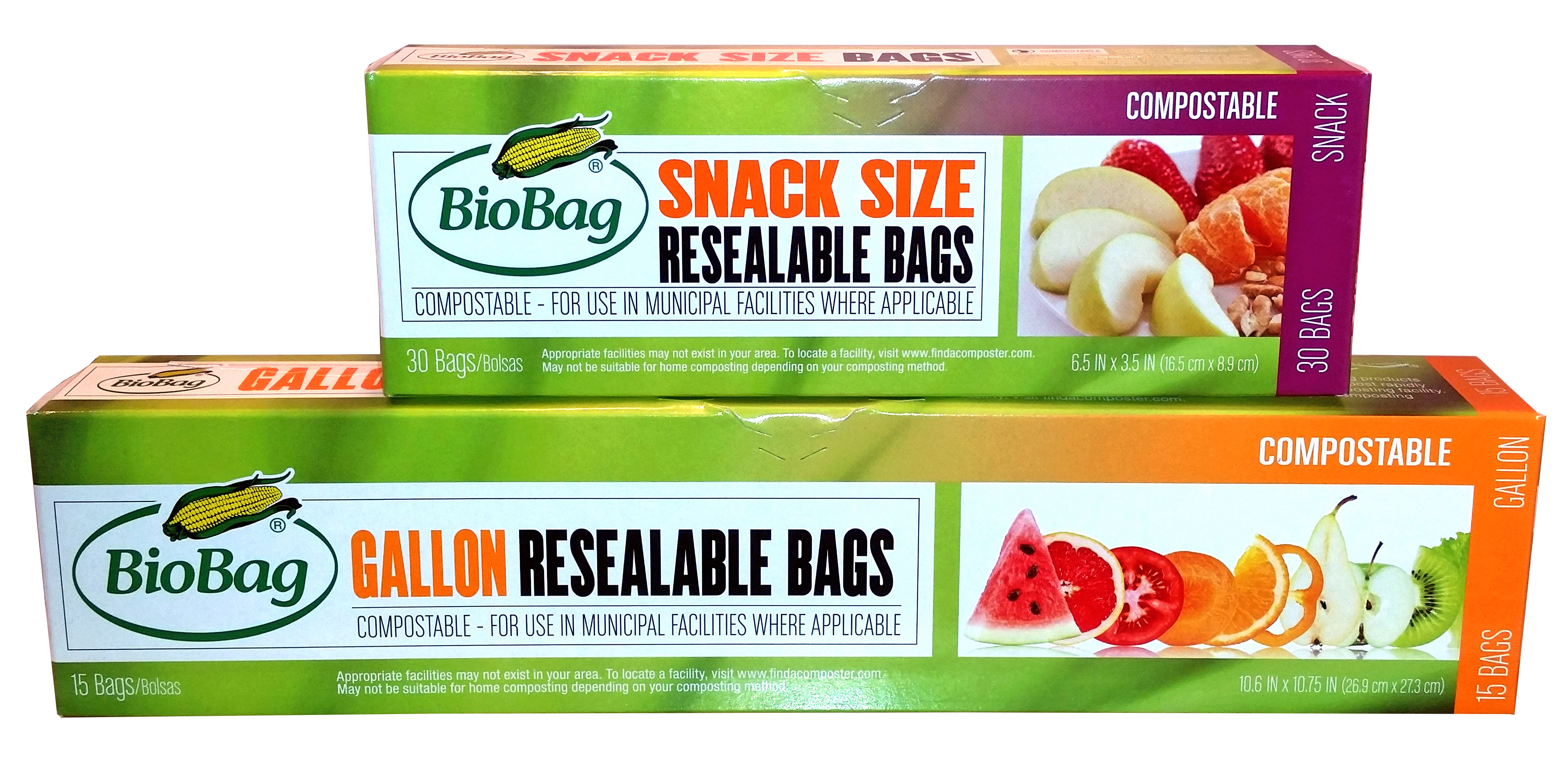
More Wonderful Benefits:
- Certified Compostable* in a municipal compostable setting
- Meets ASTM D6400
- BPA Free – Made without plasticizers or other additives that may be transferred to the food
- Great alternative to polyethylene-based plastic sandwich and storage bags
- Prevents and restricts the contents’ exposure to moisture and oxygen
- Good for all kinds of foods, including those with high fat and acid content
- Made from GMO Free crops
For wholesale case orders, please contact us directly at info@biobagusa.com.
*Appropriate facilities may not exist in your area. To find a municipal composting facility, visit findacomposter.com. May not be suitable for home composting depending on your composting method.
